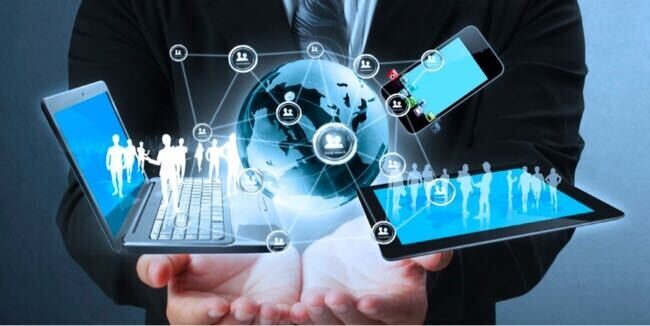Digitalization is the generic term for the digital transformation of society and the economy; it describes the transition from an industrial age characterized by analogue technologies to an age of knowledge and creativity characterized by digital technologies and digital business innovation. Alongside business innovation, digitalization – the development of digital innovations – is one of the most important business trends for the future of the economy because companies need to develop digital strategies and focus on the key success factors of digital transformation. Digitalization focuses on different aspects; for example, the term “digital transformation” describes the gradual transition of existing economic and social systems into the digital age, while the term “digital disruption” describes the radical changes triggered by innovative digital business models.

What is the difference between digitalization and digitization?
Digitalization is a generic term for the digital transformation of the economy; it refers to the conversion of specific products – such as photos or records – from analog to digital format. In practice, these two terms are often confused for each other, so much so that sometimes they are used as synonyms.
Using structured innovation processes, digital innovation projects can be implemented in a fast and efficient way.
In recent years – since around the year 2000 – various digital technologies (such as mobile Internet, artificial intelligence, Internet of Things, etc.) have developed exponentionally and transitioned from expert application to people’s everyday lives.
- Just as the innovation of the steam engine and the spread of electricity have changed society, so has digitalization changed the economy and society.
- Digitalization is technology-driven. Digital innovations are created on the basis of new digital technologies — innovative use cases driven on the one hand by established companies, and on the other by start-ups and venture capital.
- This leads to a digitalization of different speeds. While, for example, public administration is still often only accepting paper documents and working with files, markets are changing much faster. The music and media industries were the first to experience the effects of digitalization, and the retail industry followed.
Virtually all industries are now affected by different fields of digitalization and digital transformation. Nowadays digitalization determines the future of the economy and society.
Digital economy
Digitalization is fundamentally changing the economy and society in three ways. First, it drives entrepreneurial innovation, productivity, and regional economic growth. Second, it has implications for growth, the labor market, and political participation. Finally, it places new demands on education and training in fields beyond information and communication technologies. Of central interest in the future will be the question of how quickly digitalization penetrates German and European industry (Industry 4.0) and how it changes productivity, employment, and competitiveness in different companies and sectors. Especially from an educational economic perspective, of fundamental importance will be people’s ability to adapt to the changing world of work through the education and training system.
Carola Francione


